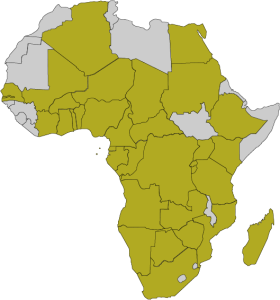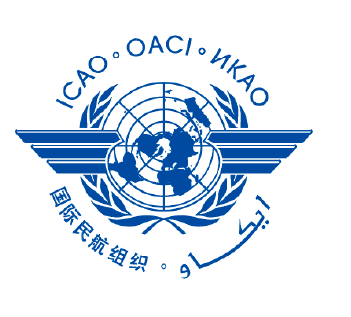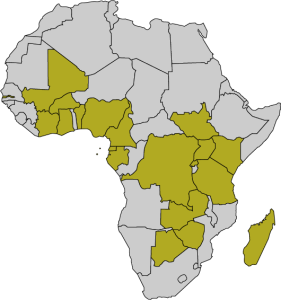STRATEGIC OBJECTIVE
Environmental Protection
>> MENU
ENVIRONMENTAL PROTECTION
At AFCAC, our position on international aviation in the face of climate change is as follows:
1. We support taking urgent action on climate change while promoting sustainable development of air transport in Africa.
2. We support the Carbon Offsetting and Reduction Scheme (CORSIA) as the market-based measure for international aviation and maintain that CO2 emissions from international aviation should be accounted for only once.
3. We reaffirm our role to foster implementation of ICAO’s Standards and Recommended Practices on issues related to the environment.
1. Introduction
The global nature of the aviation industry means that our environmental impacts have no borders. We, at AFCAC, recognize the importance of Environmental protection to the Sustainable Development of Air transport in Africa and, accordingly, we have set it as one of our strategic objectives.
Our commitment includes supporting and promoting measures to protect the environment including:

● Promoting and enhancing human and technical capacity on Environmental Protection in collaboration with aviation stakeholders and States.
● Assisting member States to develop their respective States’ Action Plans for CO2 reduction activities.
● Urging States to take measures to reduce greenhouse gas emissions and to manage the environmental impacts of aviation.
2. States’ Action Plans for CO2 reduction activities
Development of States’ Action Plans for CO2 reduction activities by African States
ICAO has outlined guidelines for all States to develop and submit States’ Action Plans for action on carbon emissions mitigation measures to ICAO.
We support Member States to develop and submit their states’ action plans for carbon reduction measures.
States’ Action Plans submitted by African States to ICAO
These States are:
Algeria, Angola, Benin, Botswana, Burkina Faso, Burundi, Cameroon, Cabo Verde, Central African Republic, Chad, Congo, Côte d’Ivoire, Democratic Republic of Congo, Egypt, Equatorial Guinea, Ethiopia, Gabon, Gambia, Ghana, Kenya, Madagascar, Mali, Mauritius, Mozambique, Namibia, Niger, Nigeria, Rwanda, Sao Tome and Principe, Senegal, Seychelles, South Africa, Sudan, Togo, Uganda, Tanzania, Zambia and Zimbabwe.

3. Global Aspirations and Basket of Measures
According to IPCC and ICAO reports, the aviation industry contributes about 2% of total global carbon emissions. In 2010, ICAO adopted 2 ambitious sectoral targets, namely an annual improvement of 2% energy efficiency and carbon neutral growth from 2020.

To achieve this goal, ICAO has set out the following 4 measures:
1. Improved aircraft technologies
2. Aerial operational and infrastructural improvements
3. Sustainable Aviation Fuels (SAFs)
4. Market-based measures (MBMs)
Acknowledging that the combined benefits of the first 3 measures would be insufficient in reaching carbon neutral growth, market-based measures have been added to offset remaining emissions.
In order to measure and act on offsetting, or market-based measures (MBMs), ICAO has implemented CORSIA, the Carbon Offsetting and Reduction Scheme of International Aviation, which we fully support. The purpose of CORSIA is to have a harmonised global approach to carbon offsetting across the aviation industry.
4. CORSIA
ICAO’s Carbon Offsetting and Reduction Scheme of International Aviation (CORSIA) is a Global Market-Based Measures Program that offers a harmonised approach to the reduction of carbon emissions caused by the aviation industry. CORSIA serves as an offsetting scheme that complements the carbon reduction efforts of technological advancements, operational improvements, and the use of Sustainable Aviation Fuels (SAFs).
African States in Corsia
Benin, Botswana, Burkina Faso, Cameroon, Côte d’Ivoire, Democratic Republic of the Congo, Equatorial Guinea, Gabon, Gambia, Ghana, Kenya, Madagascar, Mali, Namibia, Nigeria, Rwanda, South Sudan, Uganda, United Republic of Tanzania, Zambia, Zimbabwe.

The States participating en CORSIA since 2021
5. Sustainable Aviation Fuels & Low Carbon Aviation Fuels
To support Air Transport Growth in Africa and the Global Aviation Environmental Goals, we promote the initiative to accelerate the Development and Deployment of Sustainable Aviation Fuels (SAF), Low Carbon Aviation Fuels (LCAF) and other aviation cleaner energies in Africa.

Our initiative has 4 objectives to support the building of SAF production sites in Africa, namely
- Harmonization of Policies in Africa to promote SAF/LCAF development, production and deployment in African States, attract appropriate technology and financing to enable building of SAF/LCAF production facilities in African States
- Institutional, Human and Technical Capacity enhancement in African States and Regional Economic Communities (RECs) to support implementation of SAF/LCAF initiatives in Africa including building of SAF/LCAF producing facilities in African States
- Technical Feasibility studies/assessments on the potential of SAF/LCAF as a basis for public and private investment in SAF/LCAF production in Africa.
- Resource mobilization and lobbying through the African Union and its development partners as well as all other available funding sources to provide funding for building of SAF/LCAF production projects in African States.
To fully achieve our SAF objectives, we will be partnering with other organisations and leveraging expertise both within and outside of Africa.



